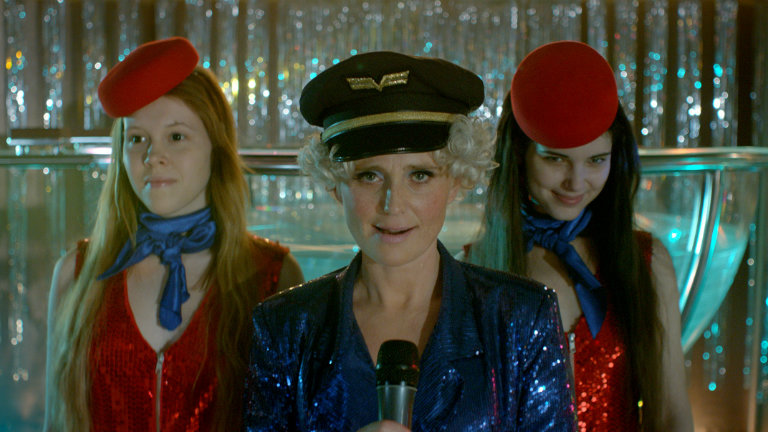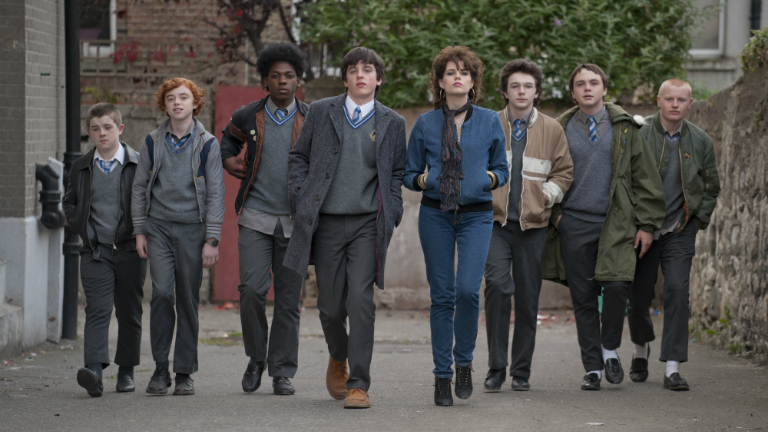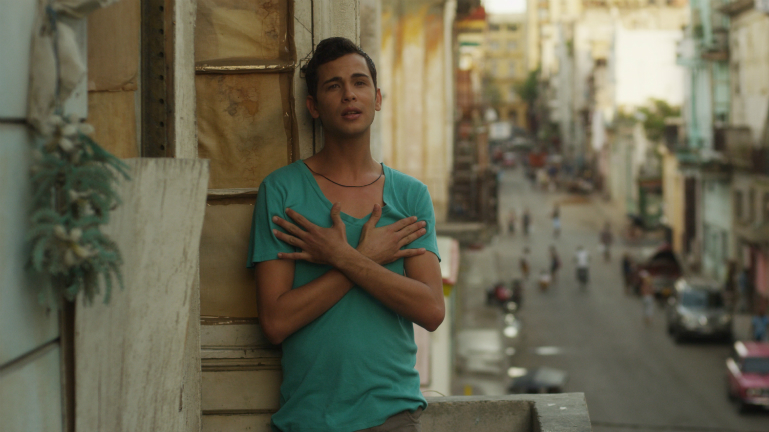What we learned from the 63rd Sydney Film Festival
June 27th 2016
James Ross

Goldstone, 2016 [Film Still]
The dust has settled on the State Theatre seats, as the final movie of the 63rd Sydney Film Festival has screened. Over 220 films were shown around the city, and it’s time for the movie buffs and next-gen Margarets & Davids to head home, compare favourites and lament over the films they missed. (There just aren’t enough Flexi-passes in the world…)
But apart from testing how long one can sit in a dark room before the human body atrophies, what did the SFF teach us?
Women are Bankable

Personal Shopper, 2016 [Film Still]
There is a cliche in Hollywood that it’s bad business to invest in so-called ‘female’ films, because they don’t attract an audience. Despite the obvious flaws in that argument (J-Law, we’re looking at you) there is a tendency to justify it by pointing at the disparity in box office success between films with male stars and those with female ones. Fortunately for us, if there’s one thing the 2016 Sydney Film Festival was able to do it was to crush that ridiculous notion and show that women make bank.
It was a huge year for female driven projects, with the 2016 Sydney Film Prize as well as the Audience Award going to movies with powerful women as their protagonists. The Film Prize winner, Aquarius, was a tender drama starring Sonia Braga as a widow fighting developers to sell her property. Her dignity and poise are matched only with the steadfastness that she refuses to allow her past to be torn away from her, a powerful statement about the importance of place on our identities.
On top of that, 60% of the films selected for bonus screenings on account of high demand were either driven or directed by women. Among the must-sees were The Lure, Personal Shopper, Under the Shadow, Certain Women, and the incomparable Toni Erdmann. If you really need further proof that girls run the world you’re just not looking.
Weird Is Wonderful

The Lure, 2015 [Film Still]
In every film festival there are the odd ducks. Films with strange premises that don’t seem like they could be anything more than a novelty, but in the right hands manage to deliver exhilarating stories with poignant messages. Last year it was Frank, the comedy-drama about the musician with a paper-mache head. This year, it’s a tie between Swiss Army Man and The Lure.
Swiss Army Man was, and remains, a controversial pick. It really shouldn’t have been a success, helmed by two directors who have never made a feature film before, with a crew who have mainly been involved in television and music videos. And yet this uncouth comedy became an authentic reflection on the trials of growing up, carried by the charisma of Paul Dano and Daniel Radcliffe to its hilariously strange finale. Farting corpses might not be your bag, but it’s a fantastic demonstration that even the worst ideas can be pulled off with class.
And then there’s The Lure, which offered us singing vampire mermaids who make a name for themselves in a Polish strip club. A musical that doubled as a genuinely unsettling horror flick, the vibe of the film seemed to constantly clash against itself. With gory surgical scenes that included delicate musical numbers, it was as sickening as it was sweet, and forced audiences into an uncomfortable but engrossing viewing experience. It won’t necessarily be your favourite film, but you’ll appreciate that its weirdness is worth it.
Love Your Darlings

Sing Street, 2016 [Film Still]
Faulkner might have told writers that “you must kill all your darlings”, but the success stories of the 2016 SFF suggest that, when it comes to characterisation, the opposite works just as well. The love shown by filmmakers to their characters is part of what made Swiss Army Man so endearing, and held true for less contentious movies like Sing Street and Paterson. Even when the protagonists were losing, you knew that didn’t make them losers.
Sing Street, for example, delivered the tried and true tale about impoverished school kids forming a band to impress a girl. It’s a fairly banal plot that was instead elevated to a higher level because of the affection that the director had for his characters. It imbued the film with a sense of optimism, transforming an otherwise dreary Irish suburb into a wonderful stage for their triumphant story.
On the other hand, films that had no love for their characters fell flat. The disappointing Down Under relied on dusty stereotypes to tell a two dimensional story without empathy or understanding. The characters lacked the warmth that made other movies glow, and felt like an outsider’s approach to an Australian issue. It needed more of the culture with less of the cringe.
The Problem of Mutual Understanding

Viva, 2016 [Film Still]
In Notes on Blindness, one of the final but most beautiful films of the Festival, theologian John Hull raised the question of mutual understanding. John was asking whether his peers could understand his experience as he slowly went blind, but his question had broader implications. Is it possible for people to overcome differences of culture, gender, or ability to empathise with one another? How do we go about doing that?
The lovely thing about the Festival this year was that it sincerely attempted to answer that question. It may have been easy to write off the slogan “Change Your View. Change Your World” as a pithy marketing strategy, but it rings true in the films they selected. From Paddy Breathnach’s Viva to Park Chan-Wook’s The Handmaiden, audiences were treated to stories that offered views and experiences from across the social and cultural spectrum.
And at the risk of sounding cheesy, isn’t that what film is for? As we empathise with heroes, villains and misfits on the screen, film makers help us to overcome this problem of mutual understanding. If there’s a major takeaway from the 63rd Sydney Film Festival it should be that movies enrich our lives, because the depth of human experience is a little more comprehensible when we watch good cinema.


